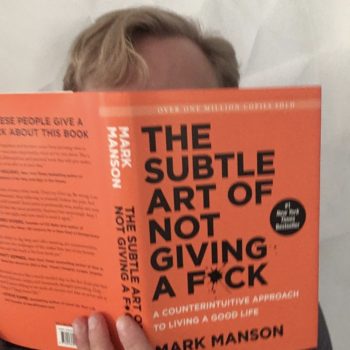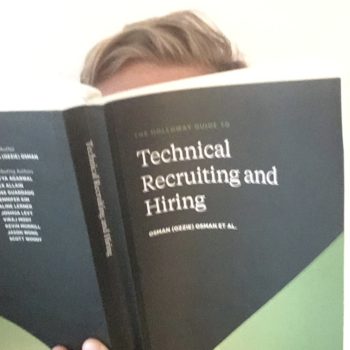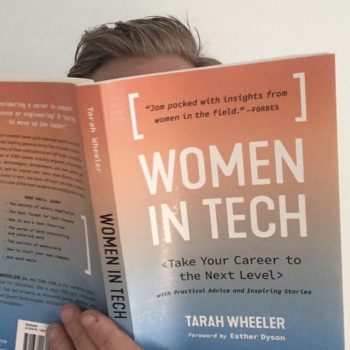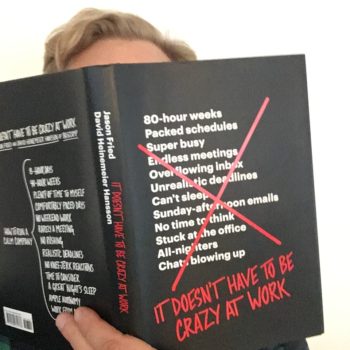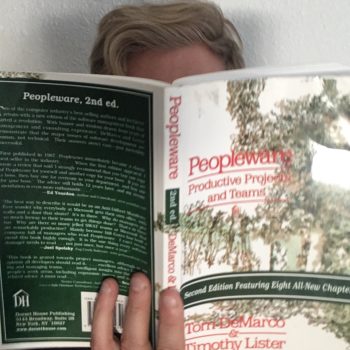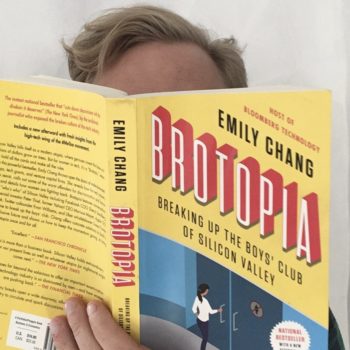
Brotopia
Breaking Up the Boys Club of Silicon Valley
Categories:
Favorite,
Engineering Manager,
Tech Recruiter
How strongly do I recommend Brotopia?
8 / 10
Review of Brotopia
Brotopia provides insight and valuable perspective around the experience of women in tech, notably applicable to team culture and recruiting.
Although some of the examples are very Silicon Valley-centric and feel a bit gossipy, I still recommend this book as a helpful way to identify anti-patterns.
Brotopia pairs well with Invisible Women, which is a bit more research-y and calls upon more examples from outside of tech.
Top Ideas in This Book
- Your career path is not the only one and women frequently take a different path from men
- No woman wants to be the first within an engineering team
- Belief in meritocracy leads to more bias
- Many women feel more exasperated than outraged at bias in the workplace
- Women leave tech at a 45% higher rate than men
Your career path is not the only one and women frequently take a different path from men
What path did you take to becoming a software engineer? Were you self-taught? Code school? Comp Sci?
I started teaching myself HTML (table based layouts anyone?) in 8th grade on my family’s first computer – a beautiful 233MHz Gateway with 14 inch tube monitor. Since then I’ve spent thousands of hours programming on my own, late at night and through weekends. Just relentless programming. That was my path.
So when I started interviewing, I looked for people with a similar path. I wanted to see their side projects and hear about coding marathons.
That’s not fair. It’s also wildly impractical from a hiring perspective.
Turns out, that expectation I previously had probably also contains some implicit bias in favor of both males and people affluent enough to spend countless teenage hours programming.
No woman wants to be the first within an engineering team
When candidates interview with your team and look around your office, what do they see? I don’t mean the keg or ping pong table, although maybe you should consider the implications of those as well.
But right now I’m talking about the people that candidates see.
Chang and the female engineers she interviews point out that nobody wants to be the first. In other words, the first female engineer on the team or in the company.
However, you might get a pass if your team is small. At that point, it’s considered understandable. But once your team turns into teams, you’ve passed the tipping point.
Belief in meritocracy leads to more bias
Teams that believe in meritocracy generally have more bias. For many engineers, this point probably feels counterintuitive. Isn’t meritocracy about removing bias?
Well, for starters a belief in meritocracy might just be a convenient excuse or cover-up for bias.
But let’s assume for a minute that it’s not; that you actually want a meritocratic environment because you believe it results in the best hiring.
In that environment, you’re likely to start favoring candidates with similar backgrounds to yours. Similar educational experiences and institutions. Similar life experiences. Similar demographics.
You’re doing pattern matching. After all, you’re a successful and good engineer at the company, right? So hiring more people like you should be a win.
Meritocracy feels very convenient assuming you already belong to the group(s) that meritocracy favors.
As a fun fact, I also learned in Technical Recruiting & Hiring that the term meritocracy was invented as satire. Yet today we use it seriously.
Many women feel more exasperated than outraged at bias in the workplace
Upon learning about the frequent sexual advances and discriminatory behaviors women in tech often face, some of us feel a sense of outrage. And we expect others, especially the recipients, to feel similarly outraged.
We can’t believe this is happening.
But when interviewed, a lot of women just express exasperation. They of course know that it’s happening and happening regularly.
Women leave tech at a 45% higher rate than men
The problem of too few women in tech is often presented as a top of funnel problem. We focus on things like STEM education and early role models.
While those are important, I was surprised to learn that women leave tech at a 45% higher rate than men.
In other words, there’s a massive churn problem that we rarely hear about. And frequently the primary source of churn is workplace treatment, not the more cited pregnancy and motherhood explanation.


